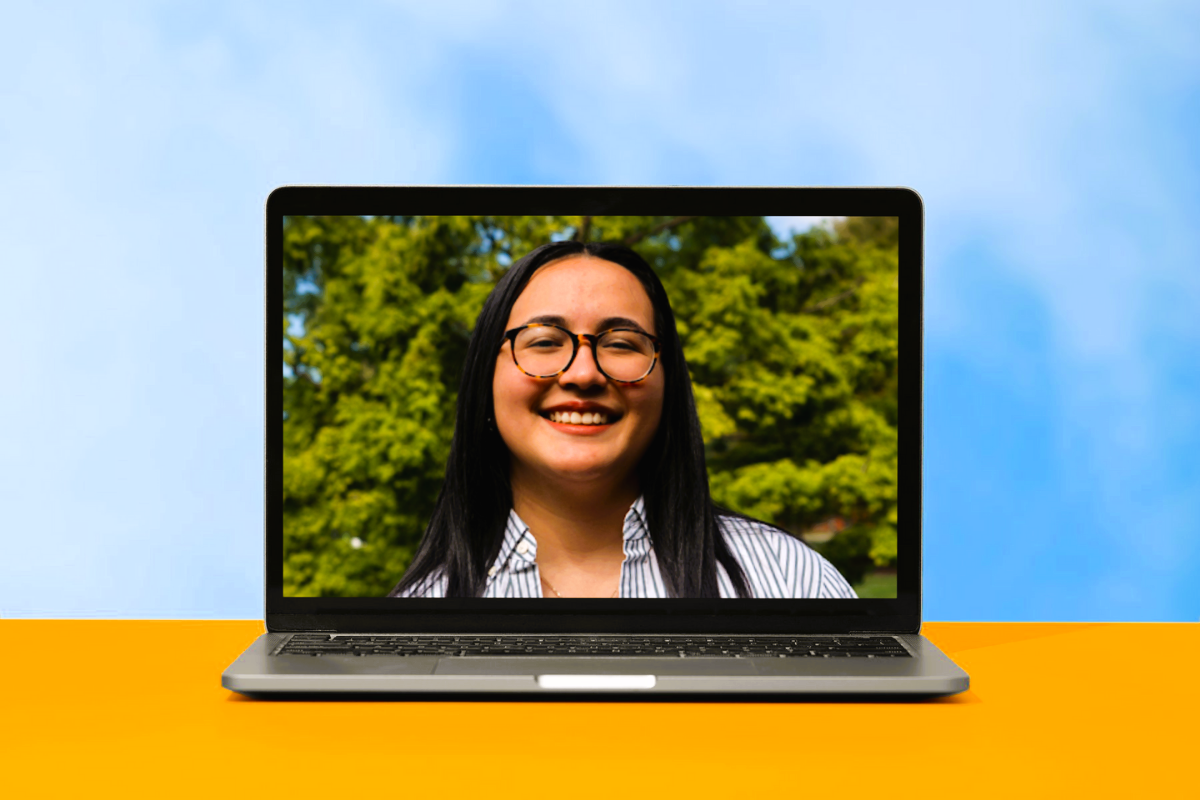Maria Jose Igartua has learned from experience that the “digital divide” is about more than just access; it also depends on design and how users experience digital learning technologies.
Igartua is an Every Learner Everywhere intern dedicating her studies and her career planning to ensuring digital tools reach their full potential to help, rather than hinder. “Technology is definitely not made for everyone, even though it should be,” she says.
“As I’ve learned about STEM and computer science in general, I’ve realized you can solve a lot of problems happening in communities by using technology,” she explains. “However, introducing it to those who could benefit from it is not that simple.”
Creating opportunity through technology
As a teenager in Chiapas, Mexico — an area she describes as “one of the most marginalized regions” of the country — Igartua, driven by curiosity and looking for opportunities to learn more about STEM, conducted an online search that led her to Kode With Klossy, a program that encourages gender equality in technology education and careers. She received a scholarship to complete a summer camp through that program in Los Angeles, and a passion for using technology to improve the lives of others was born.
This year Igartua is a junior at Mount Holyoke College in South Hadley, Mass., with a double major in French and computer science, focusing on data analytics and society. And, as one of the fall 2025 cohort of Every Learner interns, she is studying the use of AI in education and contributing to the conversation about wise implementation of digital learning technology in academic settings.
“That early experience opened my eyes a lot to the opportunities I could have in the U.S. regarding a career in tech as a woman,” she says. “Technology completely transformed my life.”
But the bootcamp and Kode With Klossy also revealed another side of technology to Igartua: Some populations have challenges accessing and using it, and she saw many in her community struggle to adapt to digital tools’ use. For example, her mother, a kindergarten teacher, told her about barriers digitized services can create for parents as they try to get required documents for their children, a task they must complete online.
“Many in this community don’t have access to the internet, and they don’t have access to smartphones,” Igartua says. “You start seeing how, as society starts driving toward digitization, they don’t really think about the people who are far behind that.”
She kept this experience in mind during coursework and other internships with the American Foundation for the Blind, whose constituents are often not considered when learning technology is designed, and the Public Interest Technology University Network. She has worked on projects such as creating virtual reality tools to study bias and racial interaction, and designing user-friendly social media content to foster community and inclusion, and she founded an initiative to support immigrant women and children through digital channels.
Making digital learning accessible
Igartua also used digital learning tools to tutor children in Chiapas. That work, along with her own experiences as a student, sparked an interest in how to effectively and ethically use AI in coursework, and how to help instructors and students make the most of AI tools.
“I was always thinking about, ‘Oh, you could definitely use ‘x’ technology to solve ‘y,’ but people wouldn’t understand how to use it,” she says. “So I started thinking a lot about user experience.”
When Igartua saw that a post in her LinkedIn feed announcing the Every Learner internship opportunity emphasized efforts to advance the effective use of AI in education, she recognized it as a fit. “AI is an emerging technology that has this big potential,” she says. “But there are so many technologies and resources that are not used for the social good, for the benefit of the public.”
Igartua hopes her education and work with organizations like Every Learner will be a springboard for a career as a digital accessibility technologist, a role in which she would work with people to determine how to make digital spaces more accessible to others. She wants the technology that has made such an impact in her life to also help others achieve their goals.
“Without technology, I wouldn’t have the opportunities I have now,” she says. “Digital spaces and technology have exposed me to experiences I would have never dreamed of. They have greatly impacted my life. If that happened to me, I really believe it could happen to everyone else.”
Join our newsletter to be the first to learn about student internship news

